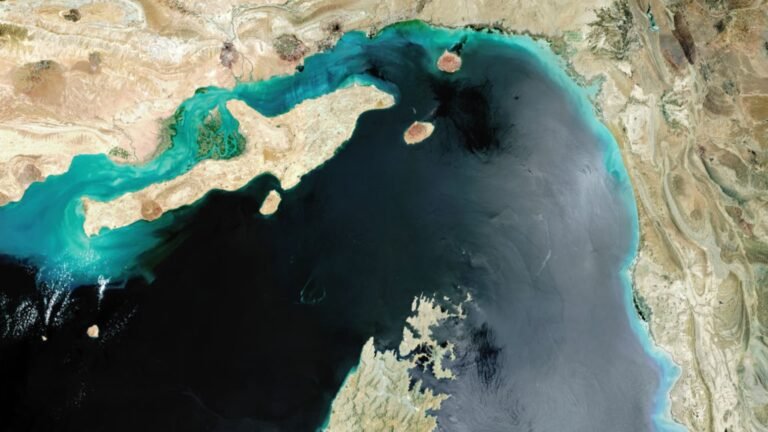Satellite image of the Strait of Hormuz, a strategic maritime choke point with Iran situated at the top with Qeshm Island and the United Arab Emirates to the South. Imaged 24 May 2017.
Gallo Images | Getty Images
U.S. Secretary of State Marco Rubio on Sunday called for China to prevent Iran from closing the Strait of Hormuz, one of the most important trade routes for crude oil in the world.
“I encourage the Chinese government in Beijing to call them about that, because they heavily depend on the Straits of Hormuz for their oil,” Rubio said in an interview on Fox News. China is Iran’s most important oil customer and maintains friendly relations with the Islamic Republic.
Iran’s foreign minister warned earlier Sunday that the Islamic Republic “reserves all options to defend its sovereignty,” after the U.S. bombed three key nuclear sites over the weekend.
Iranian state-owned media, meanwhile, reported that Iran’s parliament backed closing the Strait of Hormuz, citing a senior lawmaker. However, the final decision to close the strait lies with Iran’s national security council, according to the report.
An attempt to block the narrow waterway between Iran and Oman could have profound consequences for the global economy. Some 20 million barrels per day of crude oil, or 20% of global consumption, flowed through the strait in 2024, according to the Energy Information Administration.
Oil prices could shoot above $100 per barrel if the strait is closed for a prolonged period, according to Goldman Sachs and consulting firm Rapidan Energy.
Iran is the third-largest oil producer in OPEC, pumping 3.3 million barrels per day. The Islamic Republic exports at least 1.6 million bpd, with nearly 80% sold to China, according to the EIA.
Rubio said it would be “economic suicide” for Iran to close the strait. “We retain options to deal with that,” the U.S. secretary of state said.
“It would hurt other countries’ economies a lot worse than ours,” Rubio said. “It would be, I think, a massive escalation that would merit a response, not just by us, but from others.”
The U.S. Fifth Fleet is stationed in Bahrain and tasked with protecting maritime trade in the Persian Gulf. Oil market participants generally believe the U.S. Navy would swiftly vanquish any attempt by Iran to block the Strait of Hormuz. But some analysts warn that the market is underestimating the risk.
“They could disrupt, in our view, shipping through Hormuz by a lot longer than the market thinks,” said Bob McNally, founder of Rapidan Energy and former energy advisor to President George W. Bush.
Shipping could be interrupted for weeks or months, McNally said, rather than the oil market’s view that the U.S. Navy would resolve the situation in hours or days.
“It would not be a cakewalk,” McNally told CNBC.

